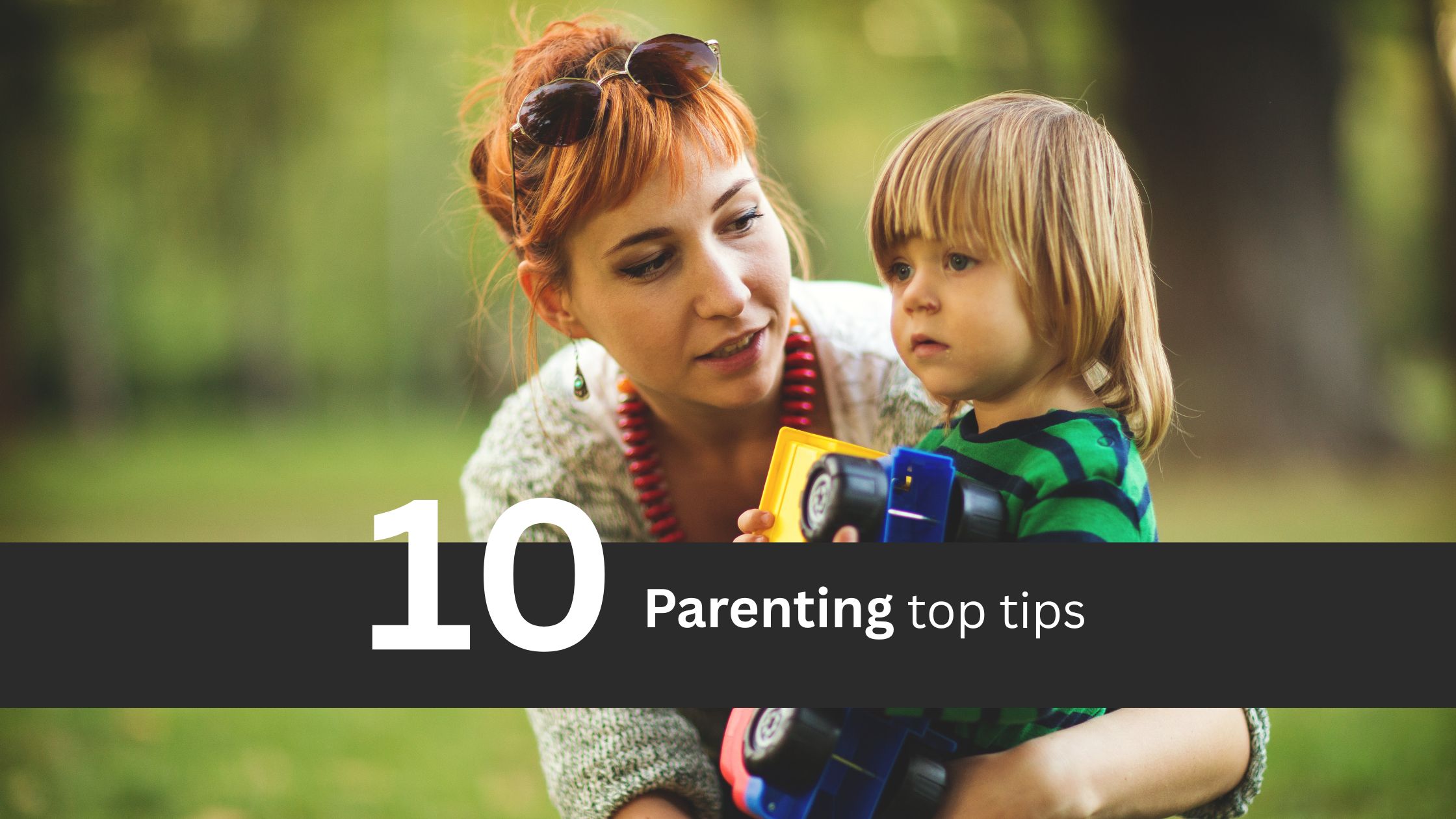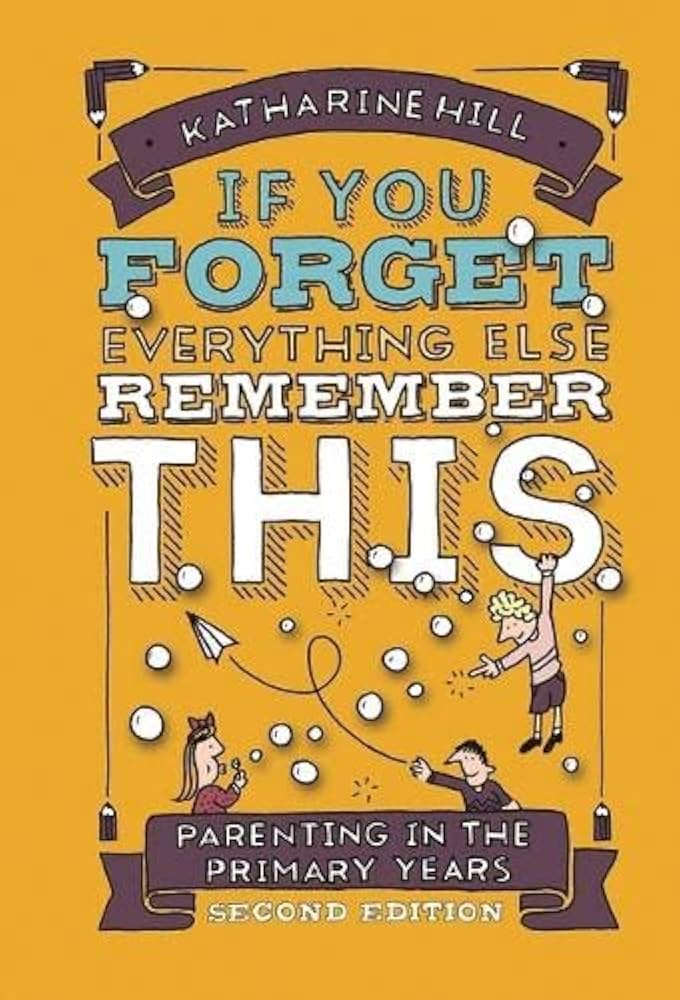10 Parenting Top Tips

The following 10 Parenting Top Tips have been taken from the brilliant book ‘If You Forget Everything Else Remember This: Parenting in the Primary Years’ by Katharine Hill. (Muddy Pearl, 2015). There is further information about where you can buy a copy of this book at the end of this article.
DOWNLOAD this article HERE
1. There’s no point trying to be Supermum or Superdad
Parenting is one of the most significant and demanding roles anyone can undertake, and it truly deserves our utmost dedication. However, it’s important not to feel the pressure to become a Supermum or Superdad—such expectations are unrealistic. Remember, parenting is not a competitive sport, and we should refrain from comparing ourselves to others. Be honest about the joys and challenges of being a parent, decide on the parenting style that works best for your unique circumstances, and strive to do your best. We don’t need to prove anything, and there’s no requirement to be a superhero in parenting. Embrace your journey authentically!
2. Listening says ‘you matter’
As parents, we can help our children feel valued and special by giving them the belief that they matter, simply by listening to them. The challenge is that we often view things through an adult lens, and what we consider important may not hold the same significance for our children. Truly listening with both our ears and our eyes generally requires us to pause what we are doing and convey to them, “You matter.”
3. Love them and let them know
The most invaluable gift we can offer our children is the assurance that they are loved unconditionally. Even on challenging days, most of us as parents recognize our immense love for them. The key question, however, is whether we are expressing that love in a manner that truly resonates with them. In his book, ‘The 5 Love Languages’, Gary Chapman provides valuable insights into this concept. He identifies five distinct ways to communicate love: words of affirmation, quality time, acts of service, gifts, and physical touch. While children require all these forms of love, there will often be one or two that resonate more deeply with them. Ultimately, there is no greater gift than showing our children that, no matter the circumstances, they are loved anyway.
4. Laughter is the best medicine
Life is already very serious and challenging - both for parents and children. Taking the time to laugh and have fun together can really help restore the balance and help to inject some joy into life.
5. The gift of play
As parents, we often find ourselves buying our children expensive toys, sometimes because we missed having them during our own childhood. Yet, an expert wisely noted, "We can become so focused on providing our kids with what we missed out on that we forget to offer them the valuable experiences we did have." One of those invaluable experiences is the simple joy of play and imagination.
6. Sometimes ‘playing safe’ is dangerous
Wrapping our children wrapped up in cotton wool may prevent tumbles, scrapes, and trips to the emergency room. However, if we don't encourage age-appropriate risk-taking by saying "yes," we deny them the chance to build the character and resourcefulness they need to dream big and tackle their own challenges in life.
7. Boundaries give security
Children need boundaries, and it is our responsibility as parents to establish those boundaries. It is natural for our children to test these limits—this is an essential part of their development. By providing age-appropriate boundaries, we offer them a valuable gift: a profound sense of security that will last a lifetime.
8. Say what you mean and mean what you say
Make sure you can follow through on any consequences you use to help enforce the boundaries you have set. And then actually enforce that consequence when your children overstep the boundary.
9. Label the action, never the child
When our children are testing us to the limit it can be so easy to slip into saying things that not only convey our furstration or anger at what they have done, but also label their character. So when correcting behaviour try to phrase things in such a way where we comment on the behaviour being 'naughty' or 'bad' rather than labelling them as a 'naughty' or 'bad' person, as this leaves the possibility of change open.
10. Be the first to say sorry
Whether we are the child or the parent, mistakes are a natural part of life, and we may unintentionally hurt others along the way. The old adage, "Love flourishes when faults are forgiven," holds true in both family dynamics and relationships. As parents, when we strive to seek forgiveness promptly, we set an example for our children to develop healthy relationships in the future. By taking the initiative to say "sorry," we lead the way in fostering an environment of compassion and understanding. Embrace the power of forgiveness to strengthen family bonds and teach valuable life lessons.
Book Recommendations
 If You Forget Everything Else Remember This: Parenting in the Primary Years (Second edition)
If You Forget Everything Else Remember This: Parenting in the Primary Years (Second edition)
by Katharine Hill
ISBN: 978-1914553110
Buy on Amazon
Next Step
Continue exploring our website for more helpful articles, tips and ideas.
DOWNLOAD this article HERE